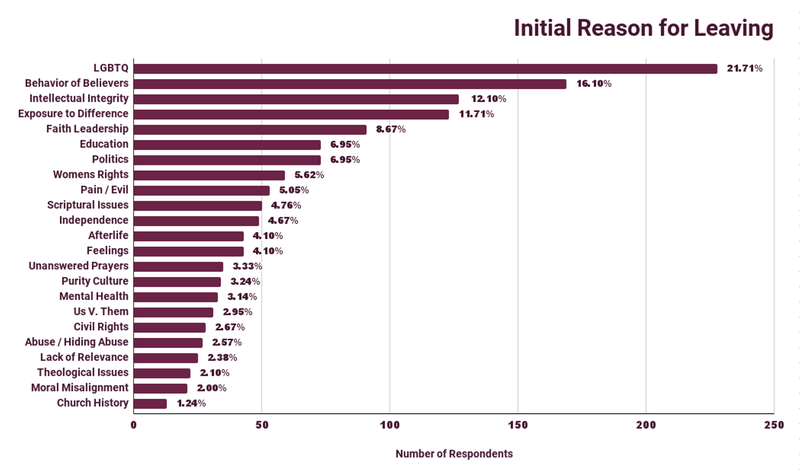· Apologetics > Apologetics and Unbelievers > Non-Christians · 6 min read
Strengthening Faith: Biblical Guide for Christians
Explore the complexities of unbelief and its impact on individuals and society in this insightful article delving into the nuances of disbelief.

Unbelief
Unbelief is a growing phenomenon in our society today. We are living in an increasingly secular world where skepticism and disbelief in the truth of Scripture are becoming more prominent. The influence of those who do not believe in God or the Bible is being felt in various aspects of society, such as education, entertainment, court systems, and government. Their voices seem to be the loudest in the public domain.
One of the reasons for the rise of unbelief is the increasing biblical illiteracy in our times. Many people lack knowledge and understanding of the Bible, which makes them more susceptible to doubt and skepticism. In addition, secular humanism has become pervasive, promoting a worldview that excludes God and focuses solely on human reason and experience.
The church also plays a role in contributing to unbelief. When the church fails to adhere wholeheartedly to the hard truths of God’s Word, it can create confusion and doubt among its members and those looking in from the outside. Another factor is the significant growth of New Age and Eastern religions, which offer alternative spiritual paths that may seem more appealing or inclusive to some.
The attempts to redefine the family and the rejection of absolutes in a postmodern society also contribute to unbelief. As moral standards continue to deteriorate, many people find it easier to reject the idea of an absolute moral authority like God. Additionally, the aggressive rise of New Atheists who actively promote atheism and challenge religious beliefs further fuels unbelief.
Ultimately, unbelief is a result of living in a fallen world where Satan, referred to as “the god of this age,” actively blinds the minds of unbelievers (2 Corinthians 4:4). As time progresses, more people will move away from sound biblical doctrine, leading to a spread of unbelief. The Bible prophesied this trend, stating that some would abandon their faith and follow deceiving spirits (1 Timothy 4:1).
It is crucial to recognize that the Bible is no longer seen as the absolute authority by many people. As a consequence, unbelief will continue to increase around the world. However, it is essential to remember that the Bible warned against unbelief and turning away from the truth (2 Timothy 4:4).
Why This Matters
Understanding the reasons behind the rise of unbelief is crucial for Christians today. It allows us to engage with these challenges effectively and respond with love and truth. By comprehending the factors contributing to unbelief, we can better equip ourselves to share the gospel and defend our faith.
Think About It
- How can we address biblical illiteracy in our churches and communities?
- In what ways can we effectively engage with secular humanism and other alternative spiritual paths?
- How do you respond to New Atheist arguments against Christianity?
The Solution: Getting Back to the Word
In a world where unbelief is increasing, it is vital for Christians to return to the Word of God as the ultimate source of truth. As John MacArthur has said, our society has grown darker, and the message presented by the church has become more confused and confusing. To combat this, we must rediscover the power and relevance of God’s Word.
The Bible contains the timeless message of salvation through Jesus Christ. It offers hope, guidance, and wisdom for every aspect of life. It is in Scripture that we find answers to our deepest questions and doubts. By studying the Bible personally, we can develop a firm foundation for our faith.
Churches also have a vital role in combating unbelief. They should prioritize teaching sound biblical doctrine and equipping believers with strong biblical knowledge. When churches faithfully adhere to God’s Word, they become beacons of light in a dark world, offering a counter-narrative to the prevailing unbelief.
Furthermore, Christians must be willing to engage with others in a loving and respectful manner. By demonstrating the love of Christ and sharing our personal testimonies, we can show the transformative power of the gospel. We should never shy away from discussing our faith or being open about our belief in God.
Why This Matters
Returning to the Word is essential for believers. It ensures that we have a solid foundation and are equipped to navigate the challenges of unbelief. When we prioritize studying the Bible, we grow in our understanding of God’s truth and are better equipped to share it with others.
Think About It
- How can you prioritize studying the Bible in your daily life?
- What role does your church play in promoting biblical literacy?
- How can you demonstrate the love of Christ to those who doubt or reject your faith?
The Hope in Spreading the Gospel
Despite the increasing unbelief and hostility toward Christianity, there is hope. Jesus Himself said that before the end comes, His gospel would be preached throughout the whole world (Matthew 24:14). Today, significant progress has been made in translating the Bible into various languages, making it accessible to a large portion of the global population.
Christian radio broadcasts also reach a vast audience, allowing the message of Christ to be heard by millions. Furthermore, countless Christians around the world risk their lives daily to spread the gospel. Even in countries like communist China, where persecution is prevalent, there is substantial growth in the number of people following Jesus Christ.
While scoffers will multiply and unbelief will continue to grow, we must remember that Jesus is still Lord of the harvest (Luke 10:2). We must continue to pray for workers to be sent out into His harvest field. God’s arm is not too short to save (Isaiah 59:1), and He is actively working through His people to bring salvation to those who are lost.
Why This Matters
Recognizing the progress being made in spreading the gospel encourages us to keep sharing the message of Christ. Even amidst a culture of unbelief, God is still at work drawing people to Himself. We must not lose heart but remain faithful in our mission to make disciples of all nations.
Think About It
- How can you support or get involved in missions and evangelism efforts?
- Are you praying regularly for the spread of the gospel and for workers to be sent out into the harvest field?
- How does knowing that God is still at work despite unbelief impact your perspective on sharing your faith?
In conclusion, unbelief is on the rise in today’s secular world. Factors such as biblical illiteracy, secular humanism, and the church’s lack of adherence to sound doctrine contribute to this trend. However, there is hope in returning to the Word of God and faithfully sharing the gospel. By studying the Bible, equipping ourselves with knowledge, and engaging with others in love, we can combat unbelief and fulfill the great commission of spreading the good news of Jesus Christ.



